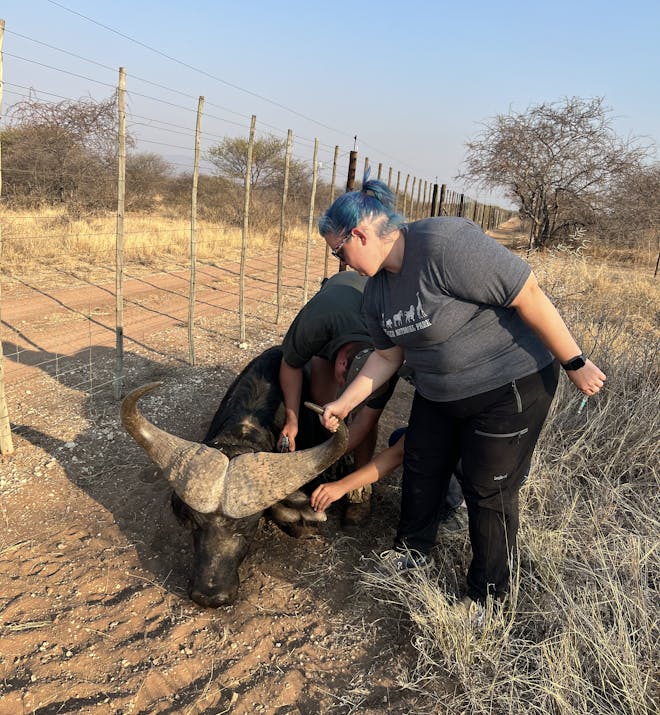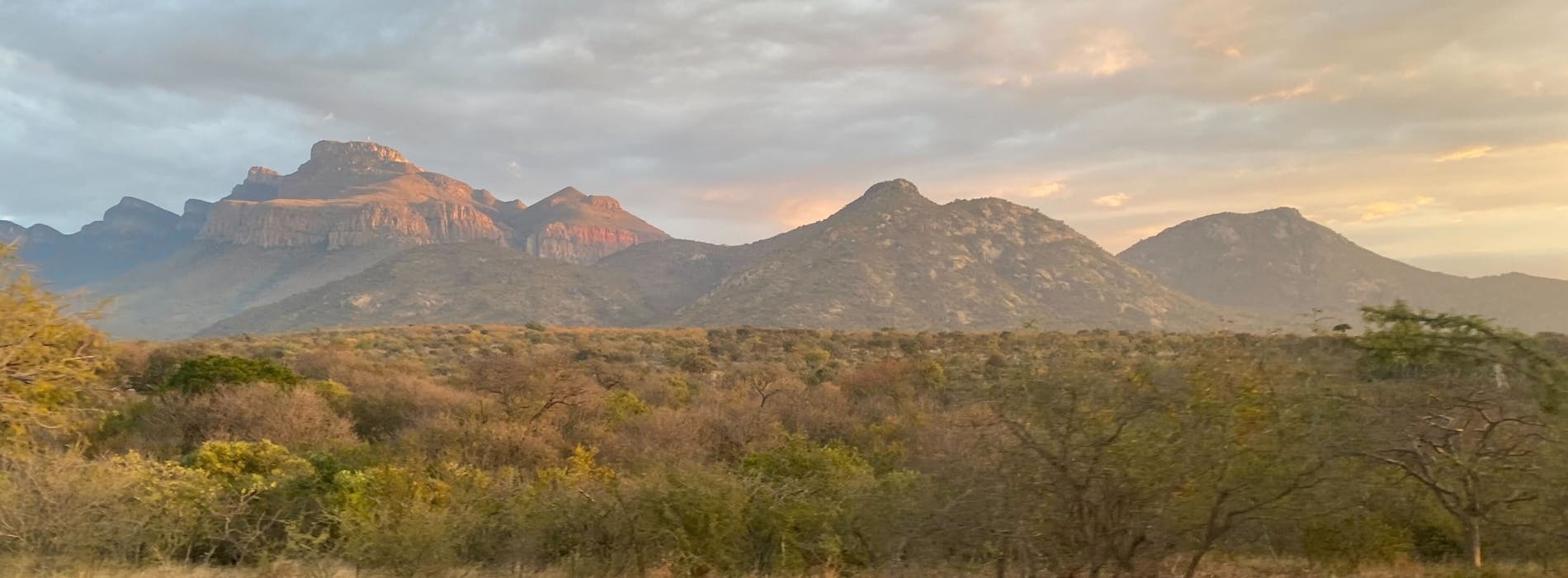WILDLIFE VOLUNTEERING: THE RED FLAGS MOST PEOPLE MISS
Learn more
Recently, I had the incredible opportunity to volunteer at the Shimongwe Wildlife Veterinary Experience, a program offered by African Conservation Experience (ACE). Over two weeks, I was involved in a huge amount of wildlife veterinary work, gaining hands-on experience with many different species.
I worked closely with white rhinos, various antelope species (including an eland – Africa's largest antelope), kudu, nyala, Impala, and sable antelope. We also worked with buffalo numerous times.
Aside from the wildlife work, I gained experience with a wide variety of livestock including sheep, goats, cattle, and horses. In the small animal practice, I assisted with dogs and cats.
I would say about 95% of the time we were out in the field doing wildlife work. It was far more than I ever expected.
Due to where I am at in my studies I was trusted with some extra responsibilities. I performed full reversals on several darted wildlife, including buffalo and antelope. I participated in the recovery and monitoring of rhinos and took blood samples from various species. I was also able to administer anti-parasite medications, inject necessary drugs, and provide vitamin supplementation.
I feel incredibly proud that I was of genuine use and value. I felt like a member of the staff.
A highlight was doing blood work on rhinos to support conservation-related reproduction projects. We took blood samples to measure testosterone levels in a bull and did a pregnancy check on a cow. It’s notoriously difficult to know how far a rhino cow is in her pregnancy without doing a sonar / physical check. So, this was an amazing experience!
I also administered numerous vaccinations to horses, livestock, and some dogs and cats in the clinic. I witnessed various surgical procedures, including assisting in a dog eyelid surgery and observing an abdominal exploratory surgery for a suspected bowel obstruction in a dog.
One entirely new experience was assisting in the treatment of a dog bitten by a Mozambique spitting cobra. This exposure to a wide variety of clinical cases and procedures was invaluable.
Throughout my time in South Africa, I observed the similarities and the significant differences in veterinary treatments compared to the USA. It was not a matter of one being better than the other, but rather a fascinating contrast. The clinic environment was also very different due to the community's needs and limited financial resources. Vets here focussed on providing complete care within these constraints. I was able to see some innovative ways the vets would perform procedures to work within their client's needs.
Witnessing the challenges they faced in sourcing materials and medications, made me appreciate the privileges we often take for granted in the USA.
I encountered unique diseases and cases rarely seen in American clinics, such as snake envenomation and frequent cases of Canine parvovirus. This really opened my mind and will make me a much better veterinarian.
I also saw several interesting things we don't see regularly, for example, large litters of puppies that have huge parasitic loads. I found the clinic work very exciting, and it's inspirational to see the staff help support the community and their animals.
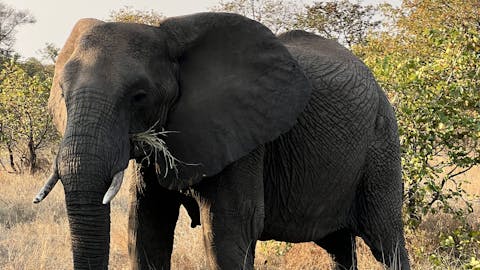
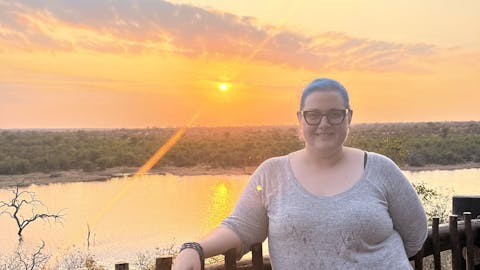
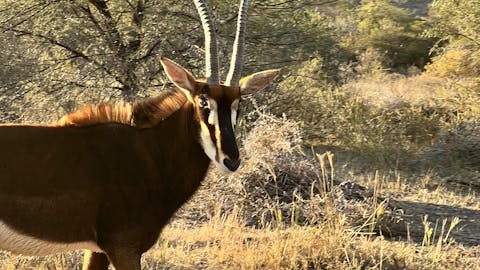
I absolutely loved the excursions I did during both weekends of my stay. They allowed me to see the surrounding area and experience the local culture.
The first weekend took me to the Leshiba wilderness reserve, a very special and beautiful place with abundant wildlife. The accommodations were lovely with great views, and the staff who ran the lodge made it feel like a second home. The experience was both rejuvenating and educational, featuring guided nature walks and insights into Venda tribal plant uses for medicinal purposes. We learned a lot about the wildlife, local birds, and insects. We also did an awesome night game drive where we got to watch the sunset over the mountains. All in all such a special experience. I could have stayed there for a whole week.
The following weekend, I visited Kruger National Park for two days, which was incredible. This was accompanied by a project staff’s family member, who was wonderfully informative. They knew all the wildlife and made keen birdwatchers out of us all, which I never thought would happen! We saw a lot of wildlife I had not managed to while volunteering like; elephants, hippos, lions, cheetahs, and leopards. Night and sunrise game drives allowed us to see even more species! We loved it!
All the excursions were super easy to go on, as the project staff organised absolutely everything for us.
This experience was invaluable in preparation for a veterinary career. While I may not end up as a wildlife vet darting buffalo and rhinos, I now have a greater passion for wildlife. I also learnt about how wildlife veterinary works in South Africa, and its place in conservation.
I had an absolutely fantastic time, and I wish I could have stayed even longer - I loved every second!
This experience was also a form of cultural exchange. We got to meet a lot of different South Africans from diverse backgrounds and cultures. Everyone is incredibly welcoming, and I was immersed in the culture from the get-go. We went shopping in the local grocery stores and ate in local restaurants. Many people came over to talk to us, as they knew the local vets, and there was a real sense of community.
The vets are really willing to have a dialogue with you about anything, so don't be afraid to ask questions. I would also say don't be afraid to get dirty! Wildlife work is messy, fast-paced, and exciting.
Volunteer tip: Throw yourself into the experience, and take every opportunity as you will be supported every step of the way. Even if you get covered in antelope drool on the back of a truck - don't panic, it will wash out.
I was blown away by the experience. I found myself doing things that I never could have imagined. It often seemed like I was living my dream. Being immersed in the area and seeing the people, the wildlife, and the beautiful scenery was just indescribable and incredibly impactful.
The most amazing thing about the whole trip is that I felt that in some small way, I made a real difference in conservation.
